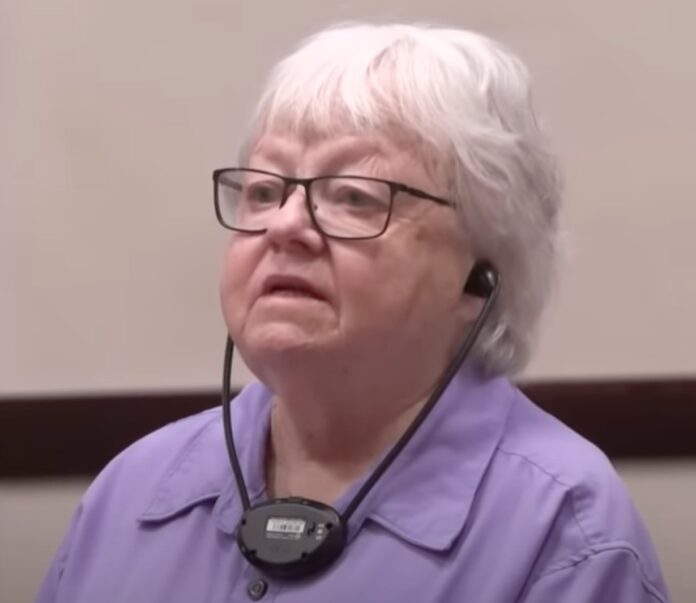Ellen Gilland, a 78-year-old woman who shot and killed her sick husband at his request has been sentenced. She will serve nearly one year in jail and 12 years on probation. The case has drawn national attention due to its emotional and legal complexities. Many have debated whether her actions were an act of love or a serious crime.
The deadly pact that led to a tragedy
She shot her husband, Jerry, behind his ear on January 21, 2023. The shooting happened in his hospital room at AdventHealth Daytona Beach. He was 77 years old and terminally ill. The couple had made a pact three weeks earlier. If his condition got worse, she would end his life. When the time came, she followed through. Authorities later revealed that Jerry had insisted on this decision after losing hope in his recovery.
Ellen Gilland’s final decision to end his life
In court, Gilland described the moment in detail. She said she held the gun behind her husband’s ear. Then she pulled back and asked if he was sure. He placed his hand on her arm and pushed the gun to his head. Then she pulled the trigger. He died instantly. Afterward, she attempted to turn the gun on herself. But she couldn’t go through with it. The emotional weight of the situation overwhelmed her. Hospital staff and police soon arrived at the scene, leading to a tense standoff.
For more than three hours, Gilland locked herself inside the hospital room with her husband’s body. She was aware of the tragedy. She refused to surrender and threatened to shoot anyone who entered. She pointed her gun at a security officer and a nurse. She even fired toward police officers. Authorities eventually convinced her to give up. She was arrested on-site and later charged. The incident left hospital staff and patients in shock.
Court decision: A balancing act between compassion and justice
The judge acknowledged that Jerry Gilland was suicidal. But she also emphasized the danger posed to others. Because of this, Ellen Gilland was sentenced to jail time. The court considered her age and health when deciding on the punishment. Along with her sentence, she must write letters of apology to the hospital staff and police officers she threatened. She is also required to do community service every month for as long as she is physically able. The judge expressed sympathy but said consequences were necessary.
How Gilland’s case affected hospital staff and first responders
Hector Aponte, a nurse present that day, testified in court. He said he had to quit his job after the shooting. He no longer felt safe at work. He also struggles with nightmares. Other staff members also spoke about the trauma they endured. The hospital had to provide counseling for those affected. The emotional scars from that day remain.
Gilland’s regret: A lifetime of guilt and reflection
Gilland pleaded no contest to the charges. In court, she expressed deep regret. She said she never meant to hurt anyone else and cause such tragedy. She admitted she made a decision she will always live with. Her actions, while rooted in love, led to devastating consequences. She will carry the burden of that day for the rest of her life.



